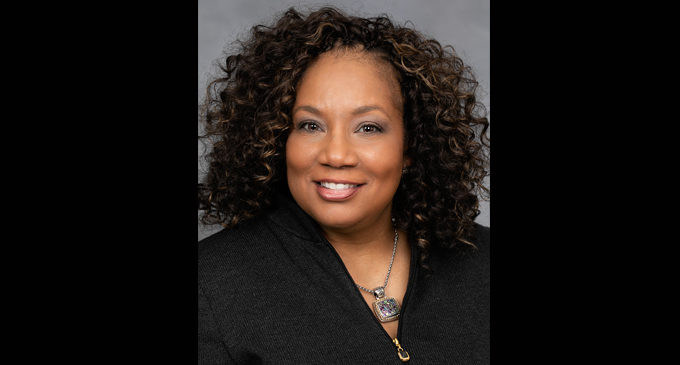A message from Representative Amber Baker: Full Bellies: One Common sense solution that helps fight school hunger in North Carolina
Rep. Amber Baker

Everybody knows that a child’s full belly is crucial to her or his education. Yet North Carolina students have amassed more than $83 million in meal debt, the sixth highest state in the country. In the state of North Carolina, children in public schools are not generally denied food if they ask, but if they can’t pay, their debt follows them throughout their school years, potentially saddling graduating high school seniors with debt their family accrued since kindergarten. Accumulating meal debt can have real consequences: some kids skip meals to spare their family the financial burden of paying for their lunches – or to spare themselves the shame that is sometimes placed on students who can’t pay for their meals.
There is one obvious solution: North Carolina’s state lawmakers could just make school breakfast and lunch free for all children in public schools. Best of all, doing so would not be particularly expensive. While some high-need schools already qualify for free lunch courtesy of the federal government’s community eligibility program, because of burdensome paperwork requirements, only 67% of qualifying schools actually participate. This means that thousands of students who already qualify for free school meals today are not actually receiving them because of paperwork. It would cost our state approximately $159 million to make school meals free for all students, an amount less than 1% of the annual education budget.
But why are free and reduced lunch federal programs – which North Carolina already participates in – not enough to keep children fed? The issue lies in the eligibility requirements for these programs. A family of four would have to make less than $33,475 to qualify for free lunch under federal eligibility guidelines, and under $47,648 to qualify for the reduced price. Every little bit of family income counts for this requirement, like the paycheck of a teenager (possibly one such student) with a summer job. Small adjustments can easily bump a financially stressed family just above the income eligibility line.
Many North Carolina families struggle financially and yet make too much to qualify for lunch assistance. SmartAsset recently reported that a family of four needs to make $209,331 to live “comfortably” in Charlotte, more than four times the income requirement for reduced-price lunch. Since there is no wiggle room for extenuating family circumstances, a family that finds themselves with unexpected medical bills could end up with no way to pay their child’s lunch bill.
And while students who can’t pay for lunch are never turned away from the lunch line, some kids skip lunch to avoid something they call “lunch shaming.” For example, in some Granville County schools, students are excluded from fun events if they carry lunch debt. In Guilford County schools, students are given an alternative meal, singling out the students who can’t afford to pay.
The benefits of universal free school meals go beyond just keeping kids fed. When you compare the data for schools participating in CEP free lunch and non-participating schools with similar profiles, the Education Policy Initiative found that academic performance scores of free lunch schools are significantly higher than their peers. It boils down to an obvious truth: a 4th grader can’t be hungry if you want him to score high on his EOGs.
A majority of North Carolina voters also recognize how vital lunch is for students. Eighty-one percent of N.C. registered voters support universal free lunch in schools. We know this could be solved, and easily. $159 million is not too much to pay to ensure that no North Carolina child goes hungry at school. It’s less than half the sum lawmakers earmarked just for private school vouchers this year. Whatever our thoughts on education policy, reasonable people can all understand the basic needs of the 80% of North Carolina’s kids who attend traditional public schools. Beyond the purely ethical reasons, there are plenty of well-established academic reasons to make school meals free as well. Basic common sense tells us that hungry kids can’t learn, so how can we expect otherwise?
In the meantime, Carolina Forward is doing its part to wipe out lunch debt in Forsyth County. With help from the county school system, they identified five elementary and middle schools with heavy lunch debt, with close to $24,000 outstanding in total. While only the N.C. General Assembly can make lunch debt a bad memory for all our students, donating can help these students start the next school year debt-free.
Passing universal free school meals in North Carolina’s public schools would be an inexpensive and common sense way to boost academic performance, remove a small burden from our state’s neediest families, and improve childhood nutrition.
It’s never too late to do the right thing. North Carolina should start today.
Rep. Amber Baker serves in the N.C. House representing District 72. Reach her at Amber.Baker@ncleg.gov.









